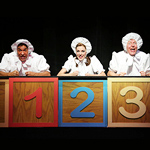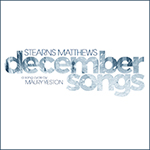Nicci Nicholas
Nothin’ Can Be Done
Don’t Tell Mama, NYC, October 23, 2019
Reviewed by Jerry Osterberg for Cabaret Scenes

Nicci Nicholas, who has an especially expressive face, was clearly “in the moment” for the entire evening, such is her ability to interpret a song with absolutely credibility. A good storyteller, she set the stage for every song, and none of the patter was wasted. Everything Nicholas relayed in her introduction was borne out in the lyrics, which delivered all that she promised.
The show included a veritable tutorial of love, but not the darker side as in “I’ve known every kind of love.” Every song was an illustration of a different aspect of romantic love, some joyful; others indicative of sadness, disappointment, and yearning along with a few expressions of hope and desire. There was even a separate category which Nicholas described as “razor blade songs.”
Nothin’ Can Be Done, the title of the show, is a tag line from “Comes Love,” introduced by Judy Canova in Broadway’s Yokel Boy. It became a jazz standard and a perfect vehicle for singers such as Ella Fitzgerald and Billie Holiday. Irving Berlin’s “Steppin’ Out with My Baby,” performed by Fred Astaire in Easter Parade, obviously necessitated some movement, which Nicholas supplied with pizzazz. “Pieces of Dreams,” one of the many Alan & Marilyn Bergman songs recorded by Barbra Streisand, was rendered with all the tenderness and poignancy the song deserves. Interestingly, Michel Legrand’s music has been transformed into a blues favorite by tenor sax musician Stanley Turrentine.
Only one songwriter was included twice over the course of the show: George Gershwin, albeit with two different lyricists. This left plenty of room for a well-diversified collection of widely known songs, all of them appropriately suited to Nicholas and clearly selected with great care by her music director Ian Herman and director Lennie Watts. Nicholas delighted with both sides of “On the Other Side of the Tracks,” written by Cy Coleman and Carolyn Leigh for Little Me, in which the female protagonist has an awakening within a few scenes. This allowed Nicholas to demonstrate the tentative aspect of the character, her singing here soft and unobtrusive; then the same woman was determined to have her success, and the voice was filled with energy and conviction.
No one can accuse Nicholas of staying within a comfort zone. It’s difficult to say what her preferred genre may be other than interpreting some of the best tunes in the American Songbook. Nicholas is most definitely not afraid to take some risk, as evidenced by the variety of her themes. Of course, the set included the “razor-blade songs.” One of them was “No One Ever Tells You”: the complete phrase reads “No one ever tells you what it’s like to love and lose.” For this song and others, pianist Ian Herman played superb solos; his accompaniment style is considered to be among the finest in the business. An ultimate torch song, written by Jimmy Van Heusen and Johnny Burke, was “Here’s That Rainy Day,” originally introduced by Dolores Grey on Broadway in Carnival in Flanders. Although the musical ran for only six performances, Grey won a Tony.
At the other end of the spectrum, Nicholas performed “God Bless the Child” and “Summertime.” Showing her story telling skills again, she infused the songs with warmth and intense feeling. The end of the concert was nothing less than a tour de force, consisting of not one but two songs in which a singer has no choice other than to open her heart to the audience: “Losing my Mind,” a Sondheim treasure from Follies,and “If You Love Me,” also known as “Hymne à l’amour,” with French lyrics by Edith Piaf.
People say that when evaluating the quality of someone’s work, no one deserves a five. Whether or not you’re a believer in such a philosophy, Nicci Nicholas appears to operate in a special sphere, so flawless was her performance. There’s a bigger list of classic songs out there awaiting her attention. Let’s hope the wait isn’t long.





